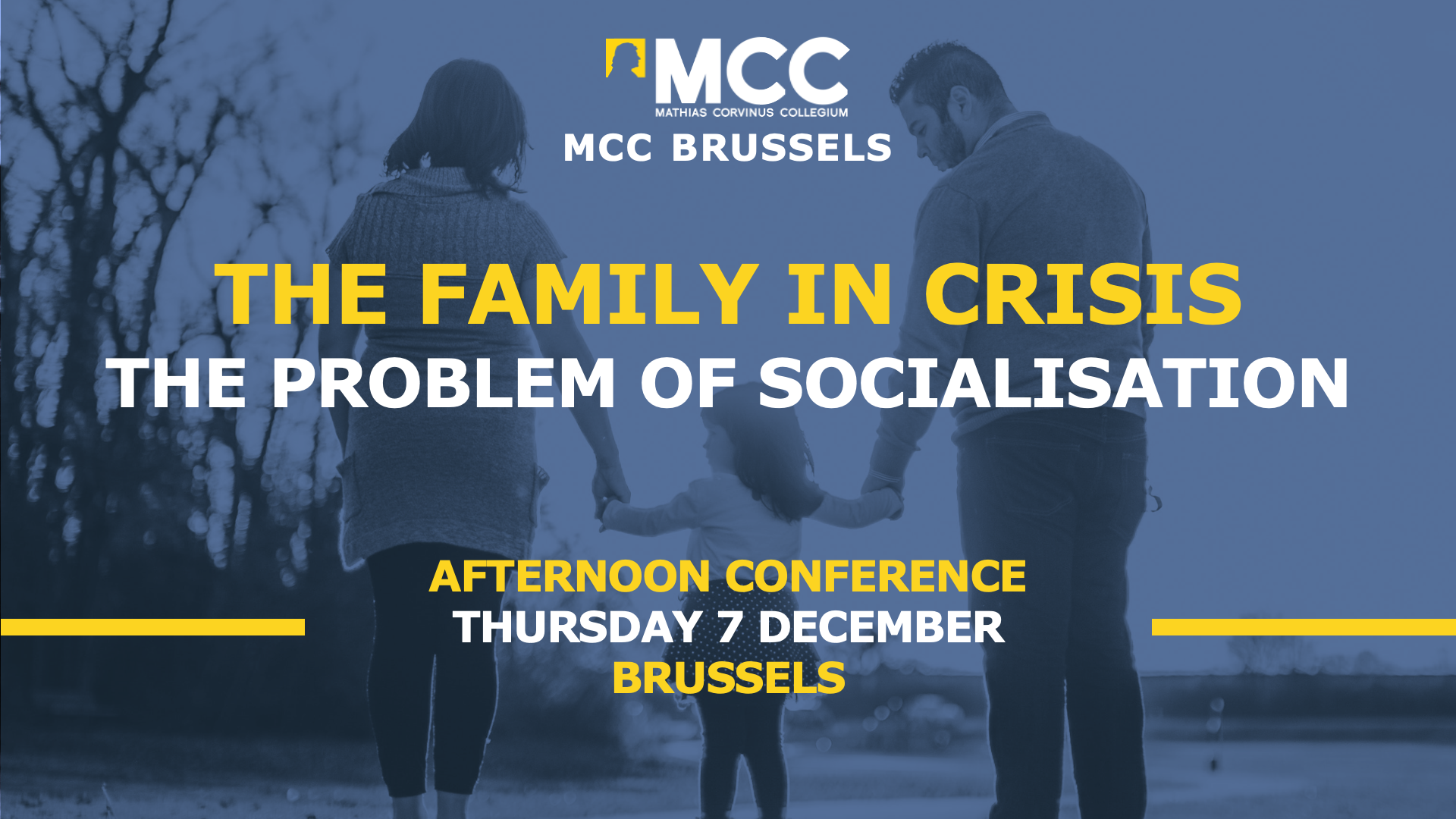Reading time: 4 minutes
Why have policymakers begun to regard the traditional family form as outdated and, in some cases, undesirable?
MCC Brussels is delighted to announce that our next conference will examine "The family in crisis: The problem of socialisation" which will take place on December 7 in Central Brussels. Join experts, commentators and politicians to tackle this foundational issue for Western civilisation.
To announce the themes of the conference and provide context for what we will discuss, our executive director Professor Frank Furedi has published an important essay which situates the crisis of family life within the broader breakdown of adult authority. The introduction to the essay can be read below and the full version is available at our website here or or over on his Substack: Roots and Wings.
The full programme and conference speakers are available on the event page. You can register here to reserve your place. See you there!

The survival of the family depends on the restoration of adult authority
The assault on the moral status of the conventional family is also directed at the authority of adulthood
Frank Furedi
Why have policymakers begun to regard the traditional family form as outdated and, in some cases, undesirable?
This question immediately raises another: what is the family, and why is it important?
The reason why these questions are frequently posed is because an institution that has served as the cradle of modern social order for hundreds of years can no longer be taken for granted. Throughout most of the modern era, the idea that the family, in its conventional nuclear form, which served as a foundational institution of society in the West, was rarely challenged. Yet today, this institution and the ideals associated with it are frequently decried and described as outdated, discriminatory and oppressive.
During the past fifty years, the authoritative status of the family has come under sustained attack by a coalition of social engineers, therapeutic and so-called caring professionals, academics and supporters of identity politics. The phrase ‘war against the family’ used by the sociologist Brigitte Berger captures an important development that emerged in the 1970s and remains in play to this day (1). The tendency to devalue the moral status of the conventional family and its norms enjoys a formidable cultural valuation. It is also widely supported by academic experts and policymakers directing family affairs. In mainstream academic literature and related policy documents, finding an unambiguous positive affirmation for the traditional nuclear family is difficult. On the contrary, in the Western world, in academic literature and official policy documents, the family tends to be associated with a variety of problems. The term ‘traditional family’ is usually treated with suspicion. It is frequently represented as an anomaly. No sooner is the term ‘two-parent family’ mentioned, but it is quickly followed by the declaration that it is only one of many other family forms, such as 'blended' and 'single parent'.
The pluralisation of family forms is based on a relativist premise that deprives the family of its normative content. This approach adopts an instrumentalist and pragmatic approach that focuses on the functions associated with family life. Since functions such as clothing and feeding a child and providing a home can be carried out by a variety of means, all family arrangements are represented as of equal worth, and no family form can be construed as better than the others. While it is true that the family structure is responsible for carrying out certain key functions – reproduction, the socialisation of children, and providing shelter and resources for survival – it is more than a repository of functions. It is also the principal source of identity and the provider of the relations that bind people to one another and previous and future generations. A family connects its members to the wider community and plays an important role in creating the bonds that bind the wider community members. It is through the family that society’s moral codes are cultivated, and a broader sense of solidarity gains definition.
Carry on reading the essay over on our articles page or at Frank's Substack
To join our conference where the themes of this essay will be discussed in detail, register now!